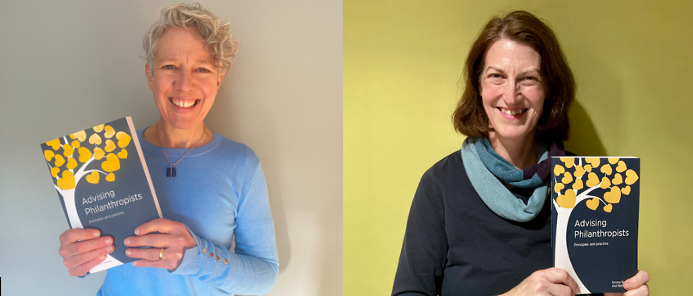
Yes, it is a real job: advising philanthropists as a profession
‘Why do you actually exist?’ The title of a recent newsletter from the consultancy and training company Modern Grantmaking certainly caught my attention. The authors pointed to the vital need for funders ‘to be able to explain their mission and what they are doing to achieve that mission’.
It’s a question that also resonated for me on a more personal level. People regularly ask me ‘what is it that you actually do’; ‘what is your role exactly’; ‘how do you have impact’? It is often hard to know where to start. My ‘occupation’ does not appear as a single option on official forms.
Fortunately, Emma Beeston and Dr Beth Breeze have now made the case that many of the ways of thinking, as well as qualities and skills, required for my work are part of a growing professional cadre. In their new book ‘Advising Philanthropists: Principles and Practice’, Beeston and Breeze suggest that philanthropy advising has emerged and should be recognised as a profession. The book looks not only at the practical considerations when working with donors but also explores the challenges and broader context for giving philanthropy advice.
It was a great personal pleasure and privilege to be one of 40 global advisors interviewed as part of the research that underpins the publication. And so, it is with curiosity that I have been reading my copy of the book.
There are many points that jumped out and will send me back for more, including:
- It is widely acknowledged that giving money away is really hard – both Aristotle and Carnegie say so, and Beeston and Breeze show that deciding both what issues to support, and how best to support them, are wicked problems for donors that continue to this day;
- Philanthropy advisory work comes in all shapes and sizes – the diversity of advisors that Beeston and Breeze have interviewed from across the globe illustrates that the profession transverses not only philanthropic foundations, but also financial institutions, academic entities, as well as private philanthropy consultancies working with many types of donors. Whilst the professional is more evolved in the US, it is now growing rapidly in Europe and emerging in other parts of the world;
- Advising is an art – advisors can (and do) research and number-crunch to develop robust and informative analysis for their donors, but the heart of the work is relational, and requires skills to engage, listen, tailor and adapt to the priorities and experiences of donor as well as the evolving external environment; qualitative factors matter as much as quantitative;
- Philanthropy advising is emergent – like in any profession, principles and practice are dynamic and developing, reflecting the reality of tackling complicated and/or complex problems in a changing world. The book helpfully captures the landscape of emergent and multifaceted thinking about how to ‘do’ philanthropy, and summarises the cases and critiques behind these ideas. If you want to situate approaches such as ‘trust-based philanthropy’, ‘effective altruism’ and ‘moonshot philanthropy’, look no further.
Beeston and Breeze’s book is informative, useful and inspiring – despite many years of working in and around philanthropy I found it enlightening to consider the emerging profession as a whole, as well as analyse and compare my role from different perspectives. I have no doubt my copy will stay close to my desk for several years to come, well-thumbed and annotated. While we should all be defined by more than our work, it is great to know that my job actually does exist.
‘Advising Philanthropists: Principles and Practice’ by Emma Beeston and Beth Breeze is out now and can be purchased from the Directory of Social Change.
– Liz Wilson, Deputy CEO of Small Foundation

